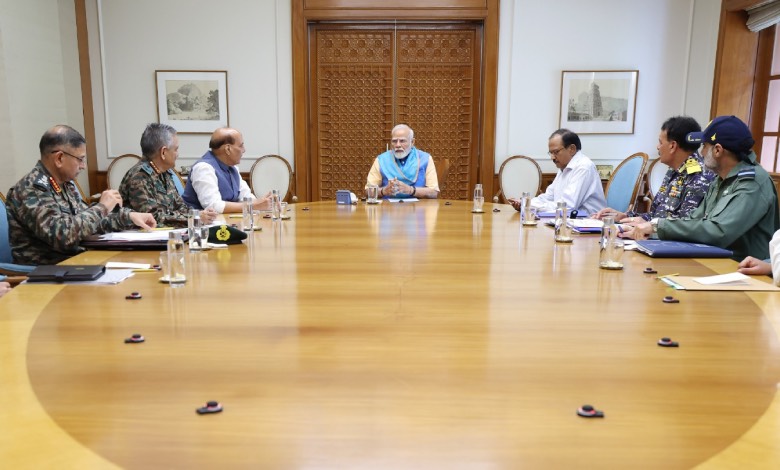
Top Indian government officials announced Saturday that India has made a decisive policy shift, declaring that future terrorist attacks will be treated as acts of war, warranting appropriate military responses. This declaration comes amid heightened hostilities with neighboring Pakistan.
The escalation follows India’s May 7 precision military operations targeting terrorist facilities in Pakistan and Pakistan-occupied Kashmir (PoK), which were conducted in response to an April 22 terrorist incident in Pahalgam, Jammu and Kashmir that claimed 26 lives, predominantly tourists.
Government sources confirmed Saturday that Pakistani strikes caused limited damage to four strategic Indian Air Force installations: Udhampur, Pathankot, Adampur, and Bhuj. In response, Indian Armed Forces executed calculated strikes on six Pakistani air bases including Rafiqui, Murid, Chaklala, Rahim Yar Khan, Sukkur, and Chunia. According to government statements, these operations specifically targeted military infrastructure and were designed to minimize civilian casualties.
Prime Minister Narendra Modi convened an emergency security meeting with Defense Minister Rajnath Singh, National Security Advisor Ajit Doval, and military leadership to assess the current situation. Footage of this high-level meeting was distributed on social media platforms.
What is “ACT OF WAR”?
In international diplomacy, labelling an action as an “act of war” indicates that a nation perceives it as sufficiently hostile to justify military retaliation. Under Article 2(4) of the United Nations Charter, the use of force against another nation’s territorial integrity or political independence is prohibited except in self-defence (Article 51) or when authorised by the UN Security Council.
While the UN Charter doesn’t explicitly define the term, historically, “act of war” refers to aggressive actions that warrant military response under international law.
This situation continues to develop and updates will follow.




